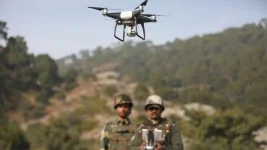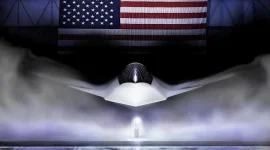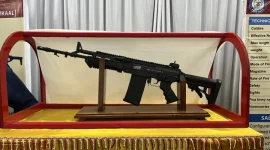
The Border Security Force (BSF) has reported a worrying trend in the evolution of drones used for smuggling across the India-Pakistan border. Newer models are smaller, quieter, and capable of flying at higher altitudes, making them significantly harder to detect and intercept.
According to Inspector-General of BSF (Punjab Frontier) Atul Fulzele, the BSF has seized 137 drones since January 1, along with 28 weapons and 160.28 kg of heroin. While land smuggling has become negligible, drone-based smuggling has emerged as the primary method for infiltrating contraband.
The newer drones are notably smaller and almost silent compared to earlier models, which were larger, noisier, and could carry heavier payloads. The new drones can carry up to 500 grams of cargo, and their increased sophistication poses a significant challenge for the BSF.
Laboratory analysis of the seized drones has revealed that they are all Chinese-made Mavic models and are being launched from locations close to Pakistani Rangers establishments. This suggests that their use is state-sponsored, a claim that the BSF has raised with Pakistani Rangers, who have been evasive in their response.
To counter this growing threat, the BSF is developing new counter-drone strategies and has intensified the use of radars for drone detection. Additionally, the state government's plan to install 3,000 AI-enabled CCTV cameras along the border is expected to boost surveillance significantly, though the project is still under implementation.



